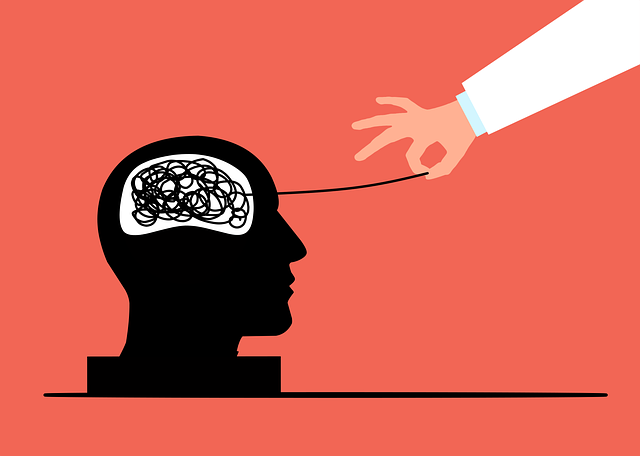Northglenn Chronic Illness Therapy leverages Emotional Intelligence (EI) as a powerful tool for managing chronic illnesses, offering specialized programs to enhance self-awareness and improve relationships. Through mindfulness practice, coping skill development, and crisis intervention, they help patients regulate emotions, navigate challenges, and build resilience. Their holistic approach includes trauma support services and risk management planning, promoting compassionate care tailored to the unique needs of chronic illness sufferers while advocating for better mental health policies.
Emotional intelligence (EQ) is a powerful tool for enhancing overall well-being. Understanding EQ and its profound impact on our lives can be life-changing, especially for those navigating chronic illness. This article explores strategies to build EQ through daily practices, emphasizing the supportive role of Northglenn Chronic Illness Therapy in fostering emotional resilience and self-awareness. By delving into these techniques, you’ll discover how to navigate challenges with greater empathy and effective communication, ultimately improving relationships and mental health.
- Understanding Emotional Intelligence and its Impact on Well-being
- Strategies for Developing Emotional Intelligence in Daily Life
- The Role of Northglenn Chronic Illness Therapy in Enhancing Emotional Intelligence
Understanding Emotional Intelligence and its Impact on Well-being

Emotional intelligence (EI) refers to an individual’s ability to recognize, understand, and manage their own emotions, as well as empathize with others’ feelings. This skill set goes beyond simple emotional awareness; it involves applying this understanding to navigate interpersonal interactions effectively. Building EI can significantly impact overall well-being, fostering healthier relationships, improving work performance, and enhancing resilience in the face of challenges, including those associated with chronic illnesses.
For individuals seeking support for chronic health conditions, Northglenn Chronic Illness Therapy offers specialized services tailored to address emotional and psychological aspects of living with a long-term illness. Mental Health Policy Analysis and Advocacy plays a crucial role in understanding and shaping systems that can better support people’s mental well-being. Effective communication strategies and risk management planning for mental health professionals are essential tools to ensure safe, compassionate care. By integrating these approaches, individuals can navigate the emotional landscapes of chronic illness with greater ease, leading to improved quality of life and enhanced coping mechanisms.
Strategies for Developing Emotional Intelligence in Daily Life

Developing emotional intelligence (EI) is a valuable skill that can significantly enhance our daily lives and relationships. Northglenn Chronic Illness Therapy offers practical strategies to cultivate EI, fostering better understanding and management of emotions. One effective approach is mindfulness practice; dedicating time for awareness and observation of thoughts and feelings without judgment allows individuals to develop self-awareness—a cornerstone of emotional intelligence. By regularly engaging in mindfulness, one can improve their ability to recognize and interpret emotions accurately.
Additionally, coping skills development through therapy plays a vital role in emotional healing processes. Learning techniques such as deep breathing exercises, cognitive reframing, and stress management strategies enables individuals to respond adaptively to challenging situations. These practices not only help in managing intense emotions but also promote emotional well-being promotion techniques that can enhance overall resilience and quality of life.
The Role of Northglenn Chronic Illness Therapy in Enhancing Emotional Intelligence

Northglenn Chronic Illness Therapy plays a pivotal role in enhancing emotional intelligence through specialized programs designed to support individuals facing chronic health conditions. The therapy focuses on providing Crisis Intervention Guidance, helping clients navigate emotional challenges that often accompany long-term illnesses. By fostering an environment of understanding and coping strategies, the therapy empowers individuals to better manage their mental well-being alongside their physical health.
In addition, Northglenn Chronic Illness Therapy offers Trauma Support Services tailored to address any psychological scars resulting from the illness or its management. This holistic approach ensures that clients not only develop practical skills for emotional regulation but also receive crucial Risk Management Planning for Mental Health Professionals, further strengthening their ability to cope with life’s uncertainties and maintain emotional intelligence in challenging circumstances.
Emotional intelligence is a powerful tool for enhancing well-being, and with strategies like those offered by Northglenn Chronic Illness Therapy, anyone can improve their EQ. By understanding our emotions and effectively managing them, we can navigate life’s challenges with greater resilience. Integrating emotional intelligence into daily routines fosters healthier relationships and overall mental health. Northglenn Chronic Illness Therapy provides valuable guidance for developing this crucial skill set, ultimately leading to a more fulfilling and balanced life.











